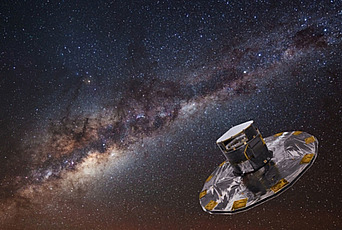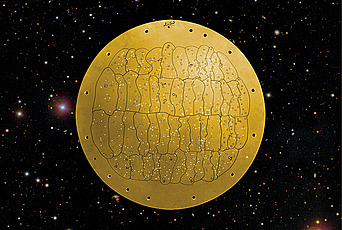
The Galactic Archaeologist Who Traces the Long History of Stars
“‘Well, professor, what is a galaxy, actually?’ Yuan-Sen asked a prominent professor at Oxford about ten years ago, while he was still in college.” The question was not meant to be facetious nor profound notes Sin Chew Daily. Having grown up in Malaysia where interest in astronomy is rare, he simply did not know the answer to this question.
Today, Yuan-Sen Ting is a Member in the School of Natural Sciences working to unravel the history of the Milky Way galaxy, employing tools in theoretical modeling, observational astronomy, and machine learning.
Speaking with Sin Chew Daily, Ting explains, “‘You can imagine the Milky Way is like a big city, just like Kuala Lumpur. I am interested in the history of this big city, from the Big Bang until now. I wish to understand when and where the stars were formed. Are they from Jaya or Klang1? I also want to know how many “foreigners” have migrated here, so to speak. We know that galaxies merge to form bigger galaxies, and their stars are like immigrants to this new city.’”
This area of study is known as galactic archaeology, which involves tracing the history of galaxies back 13.8 billion years to the beginning of the universe.
“Our technology allows us to monitor a few billion stars simultaneously, following what they are doing and where they are going.” Ting says. “We also employ artificial intelligence to distill useful information from the massive data we are collecting. In a way, what we do is quite similar to how Facebook allocates relevant ads to you. Facebook extracts useful information from your profile and makes certain inferences based on it.”
Beyond his research interests, Ting is also committed to advancing scientific education in Malaysia. He had planned to host a convention in the country with fellow Malaysian astronomers, although this was postponed due to the pandemic.
Read more from Sin Chew Daily.
1 Petaling Jaya and Klang are satellite towns near Kuala Lumpur.


